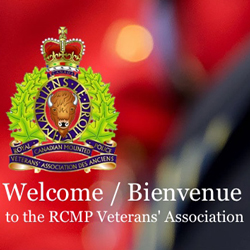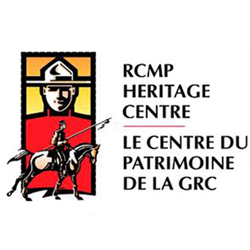Larry Burden’s This Day In The RCMP

The achievements and contributions of the Force have been built upon the individual contributions of many past Veterans. These contributions have largely been forgotten.
Veteran Sgt. Larry Burden ( #35982) served in “E” Division for 20 years has spent over ten years researching and summarizing these achievements by specific date. Nearly every day, Larry sends out an email message with a selection from his work in progress manuscript “This Day In The RCMP” to individuals interested in these historical notes.
In an effort to share his research to a large group, Larry has agreed to permit us to develop a webpage on our website. Each webpage will post Larry’s historical notations over the past week.
If you wish to contact Larry Burden or provide additional information about his research, please email him at larryburden8@gmail.com
December 27th
1901 – The first annual winter patrol between Dawson and Fort McPherson was undertaken. #2628 Sgt. Harry Mapley and a guide on dog sled carried the mail over the Mackenzie Mountains and arrived at Fort McPherson on February 2, 1902.
They traveled a distance of 475 miles and enduring bone chilling temperatures of over 50 degrees below zero. The patrols became an annual event and continued for many years.
1969 – Constables # 24696 J. K. Paterson and R. Lawrence responded to a complaint in North Vancouver BC where an intoxicated man had threatened his wife with a gun. Unknown to the policemen the man had also blown a hole in the wall with a shotgun. After positioning junior Constable Paterson to the side of the house Constable Lawrence approached the front with his revolver drawn. When he knocked the man opened the door to the house and carrying the shotgun in one hand pointed a loaded revolver with his other hand at the chest of Constable Lawrence. Constable # 28762, G. F. Paterson then raised his handgun and ordered the man to drop his weapons. After he hesitated, Patterson then pulled back the hammer on his revolver and repeated his order. Realizing the young policeman was prepared to shoot him the gunman dropped his weapons and surrendered. In recognition of his coolness and presence of mind Constable Paterson was awarded a Commanding Officers Commendation.
1980– The detachment at Old Crow, Yukon caught fire as a result of a faulty hot water heater. #26320 Corporal Don G. Pittendreigh and Constable #34655 Mike S. Statnyk did their best to fight the blaze with fire extinguishers. With the help of local residents, they managed to confine the blaze to the furnace room thereby saving the rest of the detachment.
1985– Honour Roll 183
#37421 Constable Joseph Eddy Mario Tessier was shot and killed near Gatineau, Quebec.
While driving to work in Ottawa from his home in Angers, Quebec dressed in civilian clothing; constable Tessier stopped at a minor motor vehicle and picked up the driver Andre L’Heureux to drive him to a garage. While enroute, L’Heureux pulled out sawed-off .22 and shot Tessier nine times. After the murder, he dragged the body out of the car and continued on to Gatineau and robbed store. He was later arrested, and pleaded guilty and was sentence to sentenced to life in prison.
December 26th
1901- While on patrol from northern British Columbia three constables were paddling their canoe down the Stikine River in Alaska. The canoe was loaded with all of their personal gear and their sled dog. While attempting to paddle the river the boat was swamped and everyone went into the river
Constables #2972 Norman Malcolm Campbell and #3463 Spencer Gilbert Heathcote drowned while #3617 constable Michael J. Fitzgerald escape the raging river to live on.
Norman Campbell was from Brandon Manitoba and had joined the Force seven years earlier. His body was never recovered.
30-year old Spencer Heathcote joined the Mounted Police on January 1, 1900. Originally from England he was raised in Toronto. His body was found five months later and he was interred in the village of Wrangle, Alaska.
Ironically, Cst. Mike Fitzgerald (Honour Roll 40) the only one to survive continued to serve in the Mounted police for another 12 years until he was killed while working a dragline on a steamer on the White River when he was hit in the head with a sweep handle and knocked overboard. The crew succeed in retrieving his body from the river but he never regained consciousness and died from a fractured skull. The 37-year old son of Nova Scotia was buried in the cemetery in Dawson City, Yukon.
1980 – Winter rainstorms on coastal British Columbia can cause rivers to rage and overflow. After several days of rain the Cheakamus River at Squamish spilled over its banks threatening the Geue family home. #32558 Constable Martin A. Thompson attempted to drive through the floodwaters to rescue the family, but was unable to reach them so he called for a military Search and Rescue helicopter to assist. When the helicopter arrived Constable, Thompson went aboard the helicopter and flying in dangerous winds located the partially submerged house and assisted the crew in rescuing six people from the home. In recognition of his quick thinking and courage he was awarded the Commissioners Commendation for bravery.
December 25th
1874 – #247 Sub Constables Frank Baxter and #228 Thomas D. Wilson were granted leave for Christmas and were traveling by horseback back to Fort MacLeod from Fort Kipp. Both men had celebrated the season in style and had consumed their share of beverages were on their way back to their post when they were caught in a sudden blizzard and the temperature dropped. The severely frost bitten men struggled on and in hopes of finding shelter but did not make it. A search party found them and transported them to the hospital at Fort MacLeod but they died on New Year’s day and were buried at Fort MacLeod.
1906– #4205 Constable Charles Hayter was charged in Orderly Room because shot the barrack room clock at Battleford Detachment. He was fined $10 and ordered to pay for new clock. When asked for explanation of his actions, is alleged to have said “just killing time, Sir.”
Hayter served from 1904 to 1912 retiring as a Sergeant.
1934 – #10711 Constable Alexander Unia lost all his effects in detachment fire at Forty Mile, Yukon.
1935– #12745 Constable Paul Dessureau won the 30th Annual Calgary Road Race completing of 6.147 mile run in a time of 35 minutes, 57 seconds.
1997 – #42007 Constable Gerald Fortis of the Sumas Highway Patrol was on duty in Chilliwack, BC and had arranged to travel home to begin his break so he could watch his three young children open their presents. En-route in his patrol car, he encountered a patch of black ice and skidded off the highway and smashed into a cement barrier. His seat belt and the airbag were not enough to protect him because of the angle of the impact. He died from multiple injuries. His Funeral in Chilliwack was one of the largest the town had ever seen.
He survived by his wife and 3 children. Sadly, he is not on the Honour Roll!
December 24th
1874– On this day #56 (Original Series) later #41 (New Series) Staff Constable John Alfred Martin) a member of the “March west” was one of the men moved into the newly constructed Fort MacLeod. He and the other men built the fort out of cottonwood logs on a small island in Old Man’s River. The thing about Martin was that he hid a secret from the Force and his son. Married men could not join the Force (unless they were officers) so he signed up using his mother’s maiden name and denied being married. His real name was John Alfred MacIntosh and his own son didn’t know the truth. The boy went his grave thinking that his father was his uncle! Martin/ MacIntosh served in the NWMP from 1873 to 1898.
1963– After receiving a report that an Eskimo at Alfred Point on Baffin Island, NWT had been accidentally shot in the leg, #17873 Corporal Robert S. Pilot prepared himself for the 60-mile trip by dog sled. Then the weather closed in and he had to spend two impatient days waiting out the storm. Finally, the weather cleared and Pilot made the twelve-hour trip to investigate and provide first aid to the wounded man. He found his patient in a weakened state suffering in great pain from the bullet wound to his left buttock. Corporal Pilot then opened, cleansed, and drained a cupful of puss from the wound. After applying clean dressings and administering antibiotics he continued to care for his patient, watching over him and changing the dressings twice a day. Fearing that gangrene would set in, he sent a messenger by dog sled to Pond Inlet to relay a message by radio to Frobisher Bay requesting an airlift for his patient.
While they waited for an aircraft, Corporal Pilot organized several men from the camp to construct a landing strip on the pack ice. They marked out the runway with homemade flares made from gasoline soaked rags in tin cans and lit them in the dark so the plane could land safely. When the aircraft arrived on December 30ththey loaded him and his patient and then flew to the hospital.
A month later Corporal Pilot was called on again to assist a pregnant Eskimo woman who hemorrhaging. After traveling eight miles on a borrowed snowmobile he discovered that the patient who was six months pregnant had lost nearly forty ounces of blood and he could not stop the bleeding. Following instructions from a US Air Force doctor in Thule Greenland over a short-wave radio, Corporal Pilot helped deliver a dead premature deformed fetus and then care for his patient until she could be airlifted to the hospital. Alfred Pilot never received any formal recognition for saving either life; it was just a routine part of the job.
1974 – At 6:30 am Alan Thurbon phoned the detachment in Fort Nelson BC, and stated that he had just shot a man at his motel room. #18432 Sergeant Vincent J. Hollingsworth and Constable #29733 R. Alan C. Jones rushed to the scene and when they knocked on the door of Room 11 they heard three shots fired from room 12 at an unoccupied vehicle in the parking lot. Sergeant Hollingsworth then provided cover for Constable Jones as he rushed to move their police car out of the line of fire and radio for backup. When Hollingsworth entered room 11, he found one man dead and two women, one of whom had a bullet wound to her leg. Then Constable Jones and #26327 Joseph Schalk rushed into the room with a stretcher and carried the wounded woman out to safety and returned for the uninjured wife of the assailant. After the women, had been removed the members at the scene they fired a tear gas grenade into the gunman’s room and shortly thereafter he surrendered. A search of the room resulted in the seizure of a 7mm Husqvarna rifle and 18 empty shell casings. Alan Thurbon was convicted of murder and sentenced to life imprisonment. Sergeant Hollingsworth and Constable Jones were awarded the Commissioners Commendations for courage and presence of mind and Constable Schalk received a Commanding Officers Commendation for bravery.
1977– Constable #29852 D.L. West earned a Commanding Officers Commendation for bravery for his arrest of a gunman who went on a shooting spree in the community of Moose Lake Manitoba.
1998– On this day retired World War II Provost Corps veterans #10980 Sergeant George Cutting (served 1931 to 1958), #12888 Staff Sergeant Jack Phillips (served 1937 to 1963) and #13901 Sergeant “Pick” Ivan Pickerill (served 1938 to 1967) along with 25 other Canadian war veterans who served at the Battle of Ortona, Italy sat down for a reconciliation Christmas dinner with German war veterans.
Fifty-five years earlier the Canadians ate their Christmas dinner in shifts in the bombed-out Santa Maria di Constantinopoli church on Christmas Eve 1943. The battle of Ortona was one of the hardest fought and bloodiest battles of the war to liberate Europe.


 December 31, 2018
December 31, 2018 






